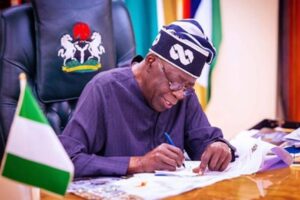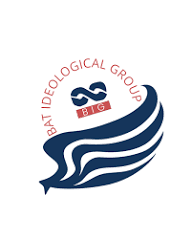Tinubu Endorses National Anti-Bullying Framework
 President Bola Ahmed Tinubu has strongly condemned the rising cases of bullying in Nigerian schools, describing them as unacceptable and contrary to the values of a safe and inclusive learning environment.
President Bola Ahmed Tinubu has strongly condemned the rising cases of bullying in Nigerian schools, describing them as unacceptable and contrary to the values of a safe and inclusive learning environment.
The President reaffirmed his administration’s zero-tolerance policy towards all forms of bullying and harassment in educational institutions across the country.
In response to growing public concern and tragic incidents involving schoolchildren, the Federal Ministry of Education, in collaboration with the Ministry of Justice, has taken decisive steps to develop a National Policy on Anti-Bullying.
This comprehensive framework will be presented to the National Council on Education for adoption.
“No child should ever feel unsafe in the very place they go to learn and grow. We are committed to ensuring our schools remain places of dignity, inclusion, and safety,” said President Tinubu in a public address.
As part of the anti-bullying campaign, the Ministry has launched a confidential whistleblower system to report cases of bullying. Victims, parents, teachers, and concerned citizens can now use the following channels:
• Helpline: 09012660044
• Email: antibullying@education.gov.ng
• WhatsApp: 08052536133
These reporting mechanisms aim to ensure prompt intervention and protection for students affected by bullying and related abuses.
To drive the formulation and implementation of the national policy, the government inaugurated a 21-member committee. The team includes representatives from:
• The Nigerian Educational Research & Development Council (NERDC)
• The Universal Basic Education Commission (UBEC)
• Civil society organizations
• School authorities and mental health experts
Their mandate includes reviewing existing legislation, drafting the national anti-bullying policy, consulting with stakeholders, and establishing sustainable reporting and intervention mechanisms.
In addition to legal and administrative reforms, the Federal Government emphasizes the importance of advocacy, mental health awareness, and community engagement. Sensitization programs targeting students, parents, and educators are underway to build a culture of respect, empathy, and accountability in schools.
Dr. Maruf Tunji Alausa, the Minister of State for Education, noted that the initiative integrates existing laws such as the Violence Against Persons Prohibition (VAPP) Act and the Safe School Declaration Act, offering a unified and enforceable framework to combat school bullying nationwide.
The urgency of this policy is underscored by recent high-profile incidents, including the death of Sylvester Oromoni, a student allegedly bullied at a Lagos-based secondary school, and the suspension of 13 students from Federal Government College, Enugu, for involvement in bullying. These cases have drawn national attention and sparked demands for systemic change.
President Tinubu’s administration sees the anti-bullying initiative as part of a broader strategy to reform Nigeria’s educational system and prioritize student welfare.
His message to stakeholders is clear: “Fast-track execution and deliver measurable impact.”
As the National Anti-Bullying Policy nears formal adoption, many see it as a historic step toward securing the rights and dignity of Nigerian children in all learning environments.







